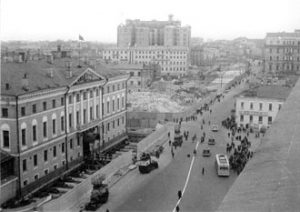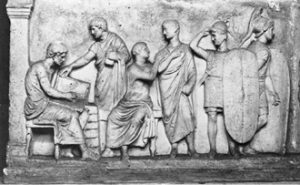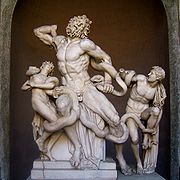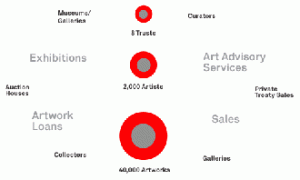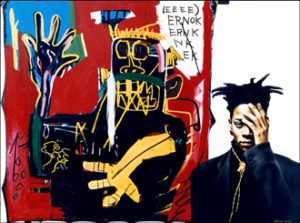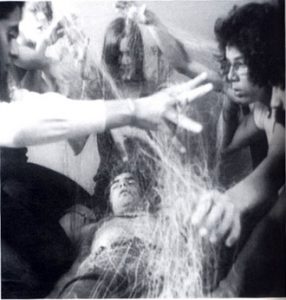Our knowledge of Russia and the USSR is no longer in focus. That is the conclusion delivered here by three researchers who offer us a historiographical overview of painting, film, architecture, and urban planning. In their company, we exit a history centered around the decryption of ideological messages effectively imposed by the state apparatus. ...
Arts & Sociétés
Letter of Seminar
the Economies of Art 2009-2010
-
-
# 30 | On Evaluation | Jacinto Lageira
Jacinto Lageira, who has recently published a book on the derealization of the world, is known for his texts about contemporary art and about theoretical reflections upon it. Lageira studies for us here how the considerable broadening of the notions of aesthetics and the artistic has had its effects on all sorts of objects. ...
-
# 29-1 | Ancient Rome | Alexandre Grandazzi
One must go back to Ancient Rome in order to study the burgeoning relationships between art and society at a time when images had already become the dominant means of expression. Valérie Naas offers us a valuable critical appreciation of Pliny the Elder’s Natural History, a key source on ancient art. She thus reveals ...
-
# 29-2 | Ancient Rome | Valérie Naas
One must go back to Ancient Rome in order to study the burgeoning relationships between art and society at a time when images had already become the dominant means of expression. Valérie Naas offers us a valuable critical appreciation of Pliny the Elder’s Natural History, a key source on ancient art. She thus reveals ...
-
# 28-1 | Nominalism | Vanessa Théodoropoulou
Katia Schneller recently defended an excellent dissertation on the constructions and deconstructions of artistic categories in New York between 1966 and 1973. In her thesis, Schneller described the proliferation of all kinds of labels, from Minimal Art to Postminimalism, passing by way of Conceptual Art and the Anti-Form movement. Such labels offer less an ...
-
# 28-2 | Nominalism | Tristan Trémeau
Katia Schneller recently defended an excellent dissertation on the constructions and deconstructions of artistic categories in New York between 1966 and 1973. In her thesis, Schneller described the proliferation of all kinds of labels, from Minimal Art to Postminimalism, passing by way of Conceptual Art and the Anti-Form movement. Such labels offer less an ...
-
# 27-1 | Values in Formation | Simon Njami
Bringing together someone involved in the world of art and an economic specialist is one of the ground rules for our seminar this year. Simon Njami is well known for the texts he has written and for the exhibitions he has organized. We are indebted to him, in particular, for an African self-definition of Africans’ ...
-
# 27-2 | Values in Formation | Pascal Petit
Bringing together someone involved in the world of art and an economic specialist is one of the ground rules for our seminar this year. Simon Njami is well known for the texts he has written and for the exhibitions he has organized. We are indebted to him, in particular, for an African self-definition of Africans’ ...
-
# 25-2 | The Power of Artists | Olga Medvedkova
Traditionally, people have often wanted to leave the last word to writers. Since Antiquity, with Philostratus, this has been because the critic was supposed to go beyond the world of appearances by sifting out a meaning and a moral, whereas the artist was suspected of doing nothing but representing forms through the use of ...
-
# 26-1 | Commodities and Gifts | Fabien Danesi
Christian Joschke invited us, during this seminar, to make the connection between avant-garde movements, on the one hand, and the practice of gift-giving and the social sciences’ take on the circulation of goods and assets, on the other. In doing so, he pointed out a peculiar development. In the 1930s, and again in the ...
